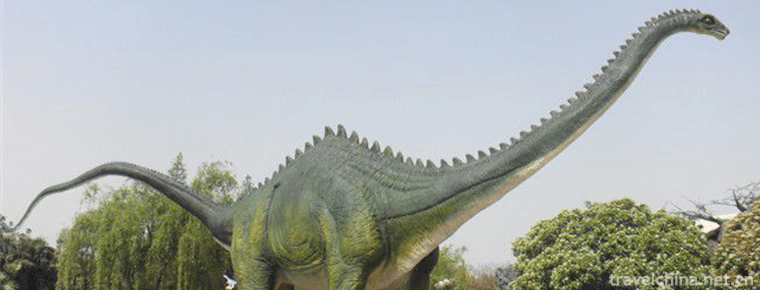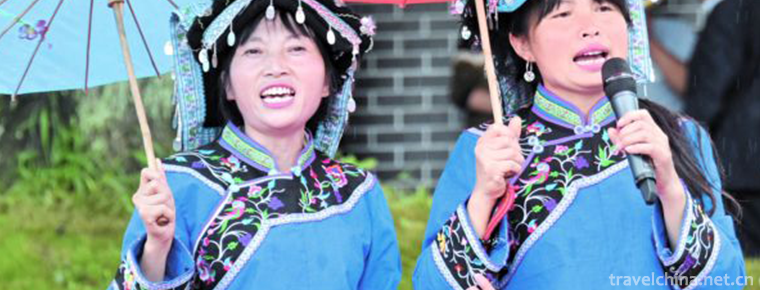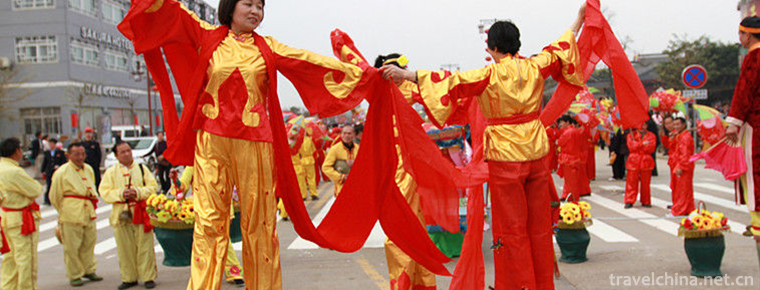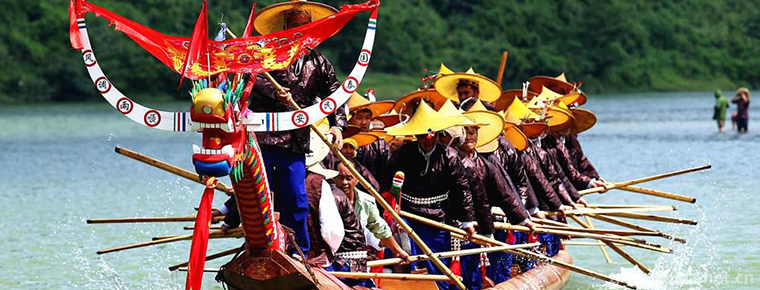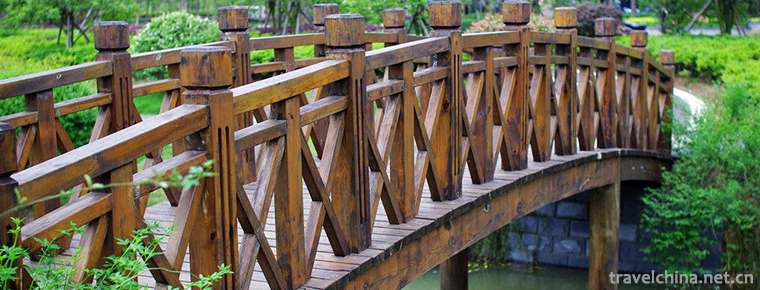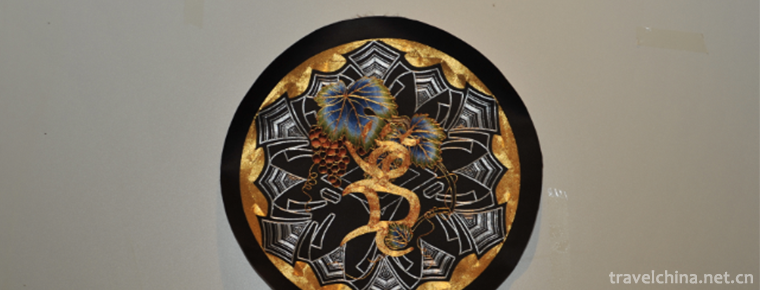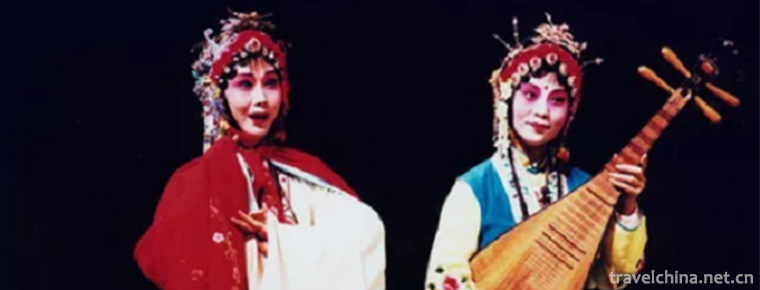Mulao Effort Festival
Mulao Effort Festival
Mulao people mainly live in Guangxi Zhuang Autonomous Region and call themselves "Ling" and "Jing". Yifan Festival is a unique traditional festival of Mulao nationality, with a strong color of Thanksgiving and wishes. Yifan Festival is also known as "Happy Wish" and "Yifan Gong Ye", which means "to return wishes to ancestors".
Mulao nationality is a unique minority in Guangxi. Yifan Festival is the most solemn festival for Mulao people. According to the meal festival, Mulao is called "cooking according to meal", "respecting the meal lord", "returning ancestors'wishes" and "joyful wishes". Yifan Festival is a traditional festival for Mulao people to pray for God to bless their harvest and for Ding Antai. The winter solstice, which lasts for 3 to 5 days, is held on every occasion and at the end of the year. Mulao people live together by consanguinity, with the same surname and clan. The branch of the same clan is called "winter". In accordance with the "food festival", the "winter" is usually prepared in turn. There are pigs, sheep, chickens, ducks, fish, rice, wine and so on.
On the same day, people slaughtered pigs and killed chickens, wrapped triangular glutinous rice dumplings, steamed glutinous rice balls, made many models of cattle and buffalo with sweet potatoes and taro, and tied up a bunch of glutinous millet ears with red lines, and prepared twelve kinds of vegetarian meat food. Two wizards, one teacher recites sutras and invites God: one teacher dresses up as a "god", wears a mask, wears a vestment and sings while dancing, and has been inviting 36 "gods". Then the cattle model and the grain ears were distributed to each household and placed on the incense. Families, guests and relatives of brothers and nationalities dozens of miles away from the village also came to congratulate, participate in festival activities, extraordinary liveliness, Carnival day and night, the activities began to end. According to the relevant information, the inheritance of Yifan Festival has a history of more than 500 years.
On May 20, 2006, the Mulao Effort Festival declared by Luocheng Mulao Autonomous County of Guangxi Zhuang Autonomous Region was listed in the first batch of national intangible cultural heritage list with the approval of the State Council.
Festival History
Legend I
Legend has it that Mulao's ancestors were released late at night with the sympathy of Liang and Wu prisoners during their imprisonment for crimes. But in the dark of the night, there were pursuers behind. At the critical moment, I saw a girl in white. She led a white horse to rescue her. The ancestors rode their horses to escape danger. After the first ancestors'prosperity, they did not forget the grace of Liang, Wu and Baima to save their lives. The day when their fate was auspicious was designated "Yifan Festival".
Legend II
Legend has it that Mulaoshan Township was invaded by foreign enemies during the Tianju Period of the Song Dynasty. Liang and Wu led the villagers to fight and die bravely and unfortunately. In the fourth year of Jiaxi reign, Huizong of Song Dynasty specially appointed Liang and Wu as officials and built a niche hall. It stipulated that Sanyuan Master should be invited to pray for God's blessing, human and animal safety, and grain abundance at the end of Hai, Mao and Hai Dynasties.
Mulao people choose auspicious days three times every 10 years at the beginning of winter in the lunar calendar. In the so-called "winter" of Mulao people's living area, they hold solemn and sacred Eating Festival in their ancestral temples and perform pious sacrificial activities. The whole activity lasted for one day and night. It consisted of seven procedures: setting up altar, inviting saints, lighting animals, persuading saints, singing Niu Ge, joining forces and delivering saints. During the festival, the whole village rejoiced, men, women, old and young celebrated the harvest, shared joy, and wished each other a good harvest in the coming year, and six livestock flourished.
Legend 3
Yifan Festival evolved from commemorating the merits of Mulao heroes Luo Yi and Luo Ying's father and daughter. Legend has it that Luo Yi and Luo Ying's father and daughter can shoot lions and tame them.
Cattle, and will cultivate wasteland, so that the Mulao people rich in clothing and food. In order to commemorate their achievements, the village gathered to beat gongs, drums and sing songs. Over time, it has evolved into a festival of returning ancestors'wishes. Nowadays, people are still singing and dancing in festivals, lion dance, dragon dance, color tune singing, and lively laughter echoes in the stockade. Young people are even happier. They go to the field to "walk on the slope". Walking on the slope is a social activity of young men and women. They sang to each other at the foot of the mountain, on the slope and by the roadside. The young man first sings "Invitation Song" and the girl pole is willing to communicate with him, then sings to express his promise, and when the two emotions depend on each other, sings a love song. The melodious song interweaves the young people's new yearning and adds new life to the old Yifan Festival.
Activity content
Major Ceremony
Opening altar: also known as "altar", "altar of peace", "the beginning of the altar", "invite meritorious service to Cao". That is to say, three bamboo tubes are placed on the altar table, each containing three Bingxiang and three animals. Four mages beat gongs to open the altar. One of the mages worships the four sides and respectfully invites meritorious service to Cao.
Please be holy: For tea, oranges, sugarcane, sesame, soybeans and other 12 elements of "Qing Feast". The master sings 36 God names one by one and dances with another teacher wearing a magic suit and a child mask. All gods are invited to come to the altar.
Living animals: that is, sacrificing gods. Each family gathered 36 chickens and ducks, and the master slaughtered one. He wrote the four words "exceeding life" in the air, then killed pigs and chickens and ducks in the courtyard.
Advice to the Holy Spirit: Please enjoy the offerings. For pork, pork head, pork tail, viscera and chicken, duck, wine and other 12 meat cooked "turbid feast".
Singing God: Singing the life and achievements of each god. Singing and dancing by a teacher wearing a light mask. Singing to a God is performed by a master wearing a God mask. The form of singing and performing depends on the life experience and performance characteristics of the gods. The tumbling and tumbling of their walking and the fighting performance were very interesting. Villagers on both sides cooperated with the "ho ah" lining to help promote the tone, and the atmosphere became warmer.
Bing Jun: Master Gong bites red cock cockscomb, and drops blood into sweet potato, taro, ox, pig, glutinous rice and wine bowl. Everyone who took part in the sacrificial ritual drank chicken blood and wine, and was said to be protected by gods. The masses would take "magic" sweet potatoes, taro made "cattle", "pigs" and glutinous rice grains to bring home to the shrine, which could guarantee Ding Pingan, five grain crops and six animals thriving.
Send Saint: Send Liang Jiu. After seeing off 36 gods, Shigong had a special farewell ceremony for Liang Jiu, which was full of joy with the people. Legend has it that Liang Jiu is a clean official who safeguards Mulao people's interests and is highly loved by the people. At that time, a teacher wearing a mask to play the role of Liang nine, carrying a stick of rooster's bamboo pole, holding a pot, blowing a swelling of the pig's urine bubbles, singing along with the villagers or answering. From astronomy and geography to trivial matters of production and life. The wrong answer is Liang Jiu's blow to his head with a pig's urine, and reads: * the male urine bubble hits your head! It caused a lot of laughter and fun. After that, Liang Jiu and the sacrificial leader paid four cups of wine to each other. They quickly pushed down their chairs and set off firecrackers, indicating that all the miasma plagues were driven away by breaking the pig's urine bubbles. At this point, the whole ceremony ended.
Please holy
For tea, citrus, sugarcane, sesame, soybean and other twelve elements of "Qingbang". The master sings 36 God names one by one and dances with another teacher wearing a vestment and a child mask to show that the God has come to the altar.
Account for
That is, sacrifice to gods. Each family gathered 36 chickens and ducks, and the master slaughtered one. He wrote the four words "exceeding life" in the air, then killed pigs and chickens and ducks in the courtyard.
Persuaded saint
Ask the gods to enjoy their offerings. Supply: Pork, head, tail, viscera and chicken, duck, wine and other 12-meat cooked "turbid feast".
"Yifan Festival" - Singing God
Singing God
Sing the life and deeds of each god. Singing and dancing by a teacher wearing a light mask. Singing to a God is performed by a master wearing a God mask. The forms of singing and acting depend on the Gods'life experiences and the characteristics of their deeds. The tumbling and tumbling of their walking and the fighting performance were very interesting. Villagers on both sides cooperate with the "ho ah" lining to help promote the tone, the atmosphere is more warm and extraordinary.
Join forces
The master bit through the cock's crown and dripped blood into sweet potatoes, taro, glutinous rice ears and wine bowls. Each participant in the sacrifice took a sip of chicken blood wine, which, according to superstition, could be protected by the gods.
Send saint
That is to send Liang Jiu. After seeing off 36 gods, Shigong had a special farewell ceremony for Liang Jiu, which was full of joy with the people. Legend has it that Liang Jiu is a clean official who safeguards Mulao people's interests and is highly loved by the people. At that time, a teacher wearing a mask to play the role of Liang nine, carrying a stick of rooster's bamboo pole, holding a pot, blowing a swelling of the pig's urine bubbles, singing along with the villagers or answering. From astronomy and geography to trivial matters of production and life. To answer the wrong person, Liang Jiu hit his head with pig urine, and read: "the male urine bubble hits your head!" It caused a lot of laughter and fun. After that, Liang Jiu and the sacrificial leaders met each other with four glasses of wine. They quickly pushed down their chairs and set off firecrackers, indicating that all the miasma plagues were driven away with pig urine bubbles. At this time, the villagers were delighted to distribute sweet potatoes, taro cattle and glutinous rice ears home for the shrine, in order to ensure the safety of people and animals, and the grain is abundant. So far, the sacrificial ceremony has all ended.
Inheritance Significance
Yifan Festival is the crystallization of Mulao's belief and custom for a long time. It embodies the essence of Mulao's culture and becomes an important symbol of Mulao's culture. After the founding of New China, Yifan Festival has become a festival for Mulao people to celebrate harvest and inherit and carry forward national culture. The sacrificial rites between the festivals have been gradually simplified, discarding feudal patriarchal elements, and adding new performances, singing new songs, sports competitions and economic and trade activities. Nowadays, the times have endowed Yifan Festival with richer cultural connotations. Yifan Festival has become a traditional festival for Mulao people to thank the Party and the government for their care, ancestors, celebration of the bumper year, praying for peace, and pursuing national unity, progress and development.
Current situation of inheritance
The Lao people's Yifan Festival is a solemn traditional festival for Mulao people to worship ancestors, gods and to celebrate harvest and protect the safety of livestock. There are slightly different holidays for Mulao people in different places.
After the founding of New China, Yifan Festival has been reformed into a festival for Mulao people to celebrate harvest and inherit and carry forward national culture and art. The Festival ritual has been gradually simplified, feudal patriarchal elements have been abandoned, and new performances, singing new songs, sports competitions and economic and trade activities have been added.
Yifan Festival is unique to Mulao people, and it is the crystallization of Mulao people's belief and custom for a long time. It embodies the essence of Mulao culture and becomes an important symbol of Mulao culture. Nowadays, Mulao people's traditional folklore has been weakening day by day. The cultural space inherited according to the rice Festival has gradually narrowed down, and there are few successors to inherit. It is urgent to rescue and protect them.
On May 20, 2006, with the approval of the State Council, the Lao people's Yifan Festival was listed in the first batch of national intangible cultural heritage list. Mulaoshan people, a traditional festival with rich national characteristics, have been effectively protected and inherited.
November 7, 2014 is the "winter beginning" of the 24 solar terms in China. The newly revised Regulations on the Autonomy of the Mulao Autonomous County in Luocheng, which came into effect on September 1, 2014, stipulates in Chapter 8, Supplementary Provisions 54 that the annual winter day of the lunar calendar is the Mulao people's meal-based Festival and one day off.
Yifan Festival is the most solemn traditional festival for Mulao people. Yifan Festival, also known as "Cooking Yifan", "Returning ancestors'wishes" and "Joy Wish", is a traditional festival of Mulao people praying for God to bless the harvest and Ding Antai. Most of the festivals are held in villages or clans, usually once every three years, mostly after the beginning of winter, but the time for festivals varies slightly from place to place.
It is understood that the central content of the folk Yifang Festival is to hold "Yifangdaochang". The celebration venue is chosen in the public ancestral hall, and the ancestral hall is not held in the first family. Ancestral temple doors are pasted with couplets, and nine red, yellow, green and blue colored paper lintels are cut and pasted. The words "worship God", "gather blessing", "celebrate" and "eat" are written respectively. In front of the temple, three doors are tied with pine branches, altars are set up in the temple, incense and candles are burned in front of the altar, and offerings are displayed. Before the ceremony, 36 God portraits were hung on the wall of the temple and masks were placed on the altar table. When offering sacrifices, besides burning incense and candles to serve wine and vegetables, some offerings such as "ox", "pig" and sweet corn and five colored glutinous rice are served with sweet potatoes and taro. The ceremony consists of two ceremonies, one wearing a mask, wearing a red vestment and straw shoes, dancing with God's reverence, known as the "Dancer"; the other wearing casual clothes, singing the Scriptures inviting God, known as the "Singer".
Luocheng County successfully held the first and second "Chinese Mulao Yifan Culture Festival" on Nov. 28, 2009 and Nov. 22, 2013, celebrating the bumper harvest with thousands of empty alleys. Mulaoshan people of all nationalities dance a harvest dance, sing a song of thanksgiving, hold harvest fruits, with the hope of reposition, to show Thanksgiving to the world according to the customs of food, "joy and wish" songs also spread all over the world.

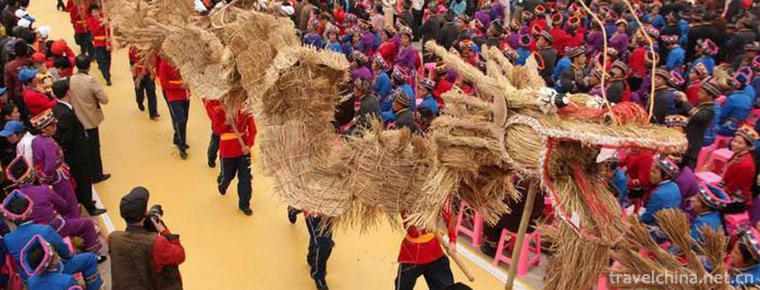
-
Global Dinosaur City Scenic Spot
The National 5A Tourist Scenic Spot Global Dinosaur City, located in Xinbei District, Changzhou, Jiangsu Province, is a comprehensive tourism resort with dinosaur theme.
Views: 275 Time 2018-12-06 -
Yanxiangdong Ecotourism Area of Hanjiang River
Yanxiangdong Ecotourism Scenic Spot of Hanjiang River is located in Shiquan, covering an area of 80 square kilometers, north of Qinling Mountains and south of Bashan Mountains.
Views: 199 Time 2019-01-13 -
Lushan Karst Cave Group Scenic Area
Yiyuan Karst Cave Group is located in Nanlushan Town, 7 kilometers northwest of Yiyuan County. It has been proved that there are more than 100 caves in the area of 5 square kilometers around the ape-m.
Views: 164 Time 2019-02-06 -
Buyi Chabai Song Festival
The Buyi Chabaige Festival is a commemorative festival of the Buyi people in Xingyi, southwest Guizhou Province. It is held in Chabaichang, Dingxiao Town, Xingyi City.
Views: 152 Time 2019-04-04 -
Stilts
Stilts, also known as "Stilts Yangko", is a folk dance widely spread throughout the country. It is named for its many feet on stilts when dancing. Stilts have a long history, originating fro.
Views: 81 Time 2019-04-30 -
Miao Dragon Boat Festival
Every year from May 25 to May 27 of the lunar calendar, the Miao people living in Shibing and Taijiang counties of Guizhou Province along the Qingshui River hold this grand gathering. The Dragon Boat .
Views: 129 Time 2019-06-05 -
Traditional Building Techniques of Wood Arch Bridge
The traditional construction techniques of Chinese wooden arch bridges mainly include site selection, abutment construction, level measurement, arch erection, upper scissors seedling, instant leg erec.
Views: 216 Time 2019-06-06 -
Ningbo Gold and Silver Embroidery
Ningbo gold and silver embroidery is one of the Han folk handicraft products embroidered on silk fabrics with various color threads, gold threads and silver threads. With its strong local characterist.
Views: 162 Time 2019-06-07 -
Soviet Opera
Su Opera is a combination of Huagu Tanhuang, Nanci and Kunqu Opera. It is popular in the urban and rural areas of southern Jiangsu and Northern Zhejiang. Its predecessor, Sutan, was originally called .
Views: 72 Time 2019-06-16 -
Kangding yak meat
There are many wild medicines such as Fritillaria, Cordyceps and so on growing in these areas over 3500 meters. Yaks often eat these herbs, and their meat is incomparably delicious. After being killed, they can be roasted in brown sauce, stewed or dried in the cold.
Views: 201 Time 2020-12-06 -
Cheongsam production technology
Most of the classical flag dresses have straight lines. The body is loose and the two sides are split. The bust and waist circumference are close to the size of the dress. The appearance of cheongsam is generally required to have all or part of the following characteristics:.
Views: 144 Time 2020-12-11 -
Guangan scenic spot
By 2018, there are 24 A-level scenic spots in Guang'an City, of which Deng Xiaoping's hometown is a national 5A scenic spot, and six scenic spots, including Huaying Mountain tourist area, Shenlong mountain Ba Ren stone city, baozhensai, Tianyi Vall.
Views: 327 Time 2020-12-19
